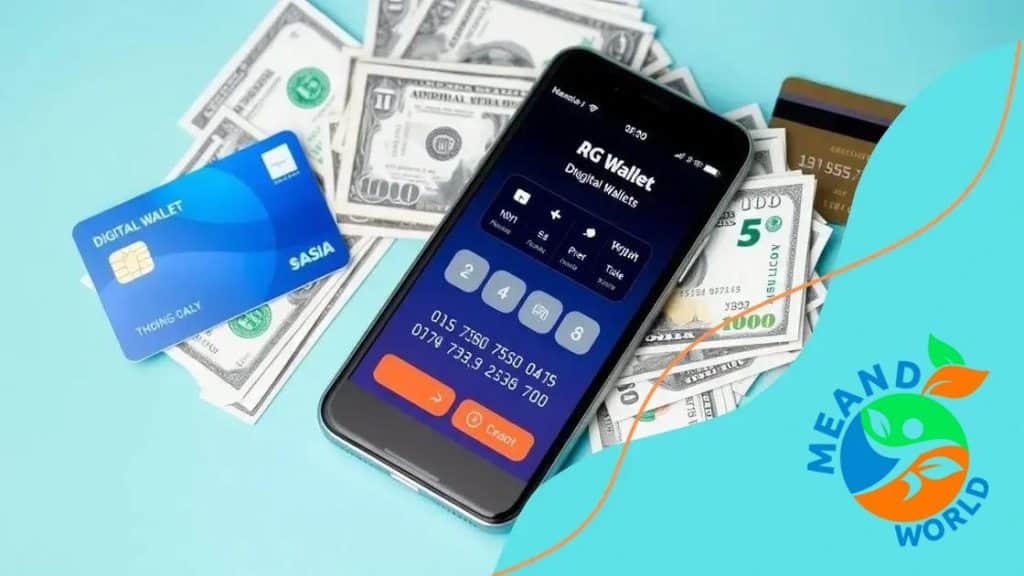The future of digital wallets in personal finance

Anúncios
The future of digital wallets in personal finance involves enhanced security, integration with cryptocurrencies, and smart features that simplify transactions and budgeting for users.
The future of digital wallets in personal finance is looking brighter than ever. As technology continues to evolve, these digital tools offer us unprecedented convenience and efficiency in money management. But how will this shift impact the way we handle our daily finances?
Anúncios
Understanding digital wallets and their evolution
Understanding digital wallets is essential in our increasingly cashless society. As technology advances, these wallets are evolving, offering new features and improved security.
Anúncios
What are digital wallets?
Digital wallets are applications or platforms that store your payment information securely. They allow you to make transactions directly from your smartphone or device, eliminating the need for physical cash or cards.
The evolution of digital wallets
The concept of digital wallets began with simple online payment systems. Over the years, they have transformed into comprehensive solutions that integrate various financial services.
- Early forms were just for online shopping and bill payments.
- Now, they include peer-to-peer payments, rewards tracking, and even cryptocurrency storage.
- They are becoming widely accepted at retail locations, online platforms, and even for public transportation.
This evolution shows how digital wallets adapt to meet consumer needs. For instance, advancements in security technology enhance user trust and convenience.
Moreover, as more users adopt these wallets, merchants are integrating them into their payment systems. This mutual growth underlines the significance of understanding how these wallets work and their benefits.
In summary, digital wallets represent a major shift in managing personal finances. By exploring their evolution, you can better understand their role in making transactions easier and more secure.
Benefits of using digital wallets in daily transactions
Using digital wallets in daily transactions offers numerous advantages that can simplify your financial life. These innovative tools are reshaping how we handle money, making payments more convenient and efficient.
Convenience at your fingertips
With a digital wallet, you can make purchases quickly and easily, whether online or in-store. Instead of fumbling for cash or cards, you can simply tap your phone to pay.
Enhanced security features
Digital wallets utilize advanced security measures to protect your financial information. This includes encryption, biometric authentication, and tokenization, which reduces the risk of fraud.
- Biometric options like fingerprint or facial recognition provide an extra layer of security.
- Transaction alerts notify you of any unauthorized activity in real-time.
- Tokenization replaces sensitive data with unique identification, minimizing data exposure.
These robust security features give users peace of mind when making transactions. Furthermore, many digital wallets allow you to track your spending, helping you manage your finances better.
Another key advantage is the potential for savings. Some digital wallets offer cashback rewards, discounts, or loyalty points when you use them. This can translate into significant savings over time, especially if you regularly use your wallet for purchases.
Additionally, transactions with digital wallets are often faster than traditional payment methods. You can complete payments in seconds, which can be particularly helpful during busy shopping times or in crowded environments.
Security features of digital wallets

Security features of digital wallets are crucial to protect your sensitive information. As we use these tools more frequently, understanding their protective measures becomes essential.
Encryption technology
Digital wallets use encryption to secure your data, making it unreadable to unauthorized users. This technology transforms your information into a complex code that can only be decrypted by the intended parties.
Biometric authentication
Many digital wallets offer biometric authentication, such as fingerprint or facial recognition. This adds an extra layer of security, ensuring that only you can access your wallet.
- Fingerprint scanning is quick and convenient.
- Facial recognition provides a hands-free option.
- These features greatly reduce the risk of unauthorized access.
Additionally, digital wallets often provide transaction alerts. These alerts notify you of every transaction made with your wallet, allowing you to spot any suspicious activities quickly.
Tokenization is another vital security feature. It replaces your sensitive data, such as credit card numbers, with a unique token. This token can be used for transactions without exposing your actual payment details.
Moreover, many wallets come with fraud protection policies. These policies may cover unauthorized transactions, giving users peace of mind when making purchases online or in-store.
Understanding these security measures is crucial. As you rely on digital wallets for transactions, knowing how they protect your data can help you use them more confidently.
Challenges and considerations for users
Using digital wallets comes with unique challenges and considerations that users should keep in mind. Awareness of these issues helps in navigating the digital payment landscape effectively.
Potential security risks
While digital wallets offer strong security features, they are not immune to risks. Users need to be aware of phishing attacks aimed at stealing their login information.
Device dependency
Your digital wallet is tied to your device. If you lose your smartphone or it gets damaged, accessing your wallet can become difficult. Regular backups of your wallet data can mitigate this risk.
- Enable remote wipe features to erase data if your device is lost.
- Consider using a strong passcode or biometric security.
- Keep your device’s software updated to enhance security.
Another consideration is the acceptance of digital wallets. Not all merchants accept every type of digital wallet, which can limit where you can use it. It’s important to check if your favorite stores accept the digital wallet you plan to use.
Additionally, users should be mindful of fees linked to their digital wallets. Some services charge transaction fees or fees for transferring money to bank accounts. Understanding these potential costs can help users avoid unexpected charges.
Finally, it’s essential to regularly review your transaction history. This habit helps in identifying discrepancies or unauthorized purchases quickly. Maintaining good practices can help you stay secure while enjoying the benefits of digital wallets.
The future trends in digital wallet technology
The future trends in digital wallet technology are shaping how we will handle money in the coming years. As technology progresses, we can expect significant advancements that enhance the usability and features of digital wallets.
Integration with cryptocurrencies
One of the most exciting developments is the integration of cryptocurrencies into digital wallets. Many wallets are beginning to support various cryptocurrencies, making it easier for users to manage both traditional and digital currencies.
Smart functionalities
Future digital wallets will likely incorporate smart functionalities using artificial intelligence. This may include budgeting tools that analyze spending patterns and suggest ways to save money.
- Automated transaction categorization to help track your expenses.
- Personalized recommendations based on spending habits.
- Alerts for potential savings opportunities based on user behavior.
Moreover, the rise of contactless payments will continue to gain traction. Users will enjoy even faster transactions as more merchants adopt tap-to-pay systems. This evolution signifies a shift toward convenience for everyday purchases.
Additionally, security enhancements will remain a top priority. Expect to see advancements in biometric authentication and AI-driven fraud detection, making digital wallets safer than ever.
As more people embrace digital wallets, these trends indicate a seamless and efficient future for personal finance management, emphasizing the importance of security and innovation.
FAQ – Frequently Asked Questions about Digital Wallets in Personal Finance
What are the main benefits of using digital wallets?
Digital wallets offer convenience, enhanced security features, and the ability to manage multiple currencies and accounts in one place.
How do digital wallets ensure my financial security?
Digital wallets use strong encryption, biometric authentication, and transaction alerts to keep your information safe and secure.
Can I use cryptocurrencies with digital wallets?
Yes, many digital wallets now support various cryptocurrencies, allowing you to manage both traditional and digital currencies.
What should I do if I lose my device with a digital wallet?
Immediately use remote wipe features to erase your data, and contact your wallet provider for support to secure your account.





